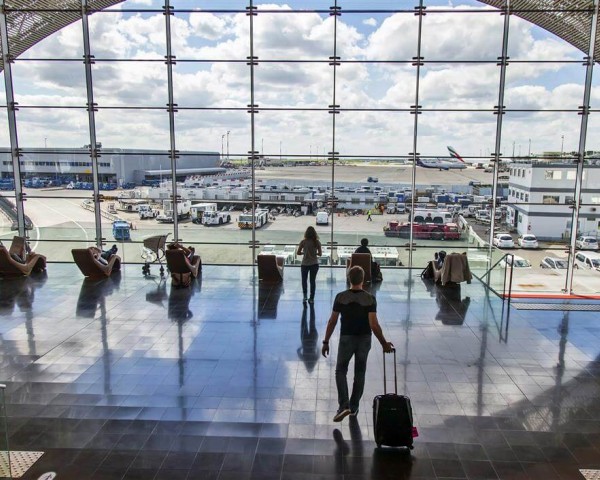Despite the doubling of the number of passengers in French airports in 2022, traffic had not returned to its pre-crisis level in 2019.
French airports are out of the health crisis but the recovery is uneven depending on the cities served, the links and the type of travelers, detailed in their main organization. The airports have recorded the transit of nearly 174 million passengers last year, said the Union of French airports (UAF).
Traffic has almost doubled in one year, but it is still 18.8% lower than in 2019, the last full year before the pandemic, which divided traffic by three. For the time being, airports have only recovered the level of traffic of 2013. And 2023 will not yet be the year of a return to pre-crisis volumes, according to UAF, which sees it ending with a 10% passenger deficit compared to pre-Covid. It is expected the pre-crisis levels will be reached in 2025.
Corsica Is Still Alive
However, several airports have already done better in 2022, in particular Beauvais which, with 15.8% more than three years earlier, has benefited from the expanded program of the Irish low-cost airline Ryanair which operates its main base there.
The performance of Corsican hubs was notable: Figari (+21.2% compared to 2019), Ajaccio (+2.7%) and Bastia (-4.5%). Paris-Orly (-8.4%), Montpellier (-9%) and Marseille (-9.9%) also performed better than the average.
But many French airports are still struggling. Clermont-Ferrand has a deficit of 56.3% compared to the pre-crisis period, Brest 35.1% and Strasbourg 28.6%. Lyon-Saint-Exupéry has a 27.1% deficit, Toulouse 26.9% and Bordeaux 25.9%.
French Airports Miss Passengers from Asia
This latest underperformance can be explained by the ban on the Paris-Orly link, imposed before the Climate Law, which has put domestic airlines on the block when a rail alternative exists in less than 2.5 hours.
At Roissy-Charles-de-Gaulle, it was the later recovery of international traffic, particularly to Asia, that underpinned the 24.5% passenger deficit in 2022 compared to 2019, UAF said. Roissy and Orly alone captured 53.3% of passengers in France last year.
UAF President Thomas Juin noted that “what is recovering very well are the airports where low-cost airlines have positioned themselves strongly,” in contrast to other platforms that hosted “traditional” traffic, clearly radial Paris-region. In addition, “business traffic is slower to recover (…) because companies have rationalized travel,” he added at a press conference.
Airports Don’t Want to Pay
Low-cost airlines are on a roll and in 2022 accounted for 43% of passenger traffic in France, a jump of eight points compared to 2021, against the backdrop of a strong trend towards the dynamism of cross-border routes. Despite the “good news” of the recovery, French airports are not finished with the consequences of Covid-19, Thomas Juin noted.
From next year until 2030, they will have to reimburse the advances granted by the State to enable them to carry out security missions (passenger and baggage control, firefighting services and animal hazards, etc.).
With interest, these sums now reach 747 million euros, according to Thomas Juin, who reiterated his call for all or part to be transformed into subsidies, in order to preserve the competitiveness of platforms.




